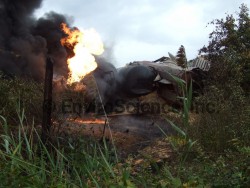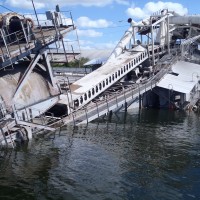The purpose of a Natural Resource Damage Assessment (NRDA) is to assess the extent of injury to a natural resource and determine appropriate ways of restoring and compensating for damage to the environment. Under CERCLA 101(6) and 1001(20), natural resources are defined as: “land, fish, wildlife, biota, air, water, groundwater, drinking water supplies, and other such resources.” In an NRDA, the functions or services provided by the contaminated resource are determined. The reduction in service levels as a result of the contamination is then quantified.
The regulations used to conduct an NRDA are based on the nature of the release. If natural resources are damaged by a release of hazardous substances or a mixture of oil and hazardous substances, then the Department of the Interior (DOI) regulations apply.
DOI regulations provide a framework for two types of assessments based on habitat. Type A evaluations apply to coastal and marine environments. In Type A assessments, a computer model is used to assess damages resulting from a chemical or oil spill in a marine environment. Type B assessments cover all other environments and utilize various approaches. Both types of assessments follow four sequential phases to assess damages:
- Phase 1: Pre-Assessment Screen to determine if additional action is warranted
- Phase 2: Assessment Plan to identify how potential damages will be evaluated
- Phase 3: Assessment Implementation to gather the data necessary to quantify injuries and determine damages
- Phase 4: Post-Assessment to report the results of the Assessment Implementation phase and propose restoration alternatives
In cases involving discharges of oil (except for any part of oil defined as a “hazardous substance” by CERCLA), the National Oceanic and Atmospheric Administration (NOAA) regulations are used to perform an assessment. NOAA outlines the following three phases under their protocols for conducting NRDAs.
- Phase 1: Pre-Assessment Screen to determine appropriate jurisdiction and the likelihood of environmental damage
- Phase 2: Restoration Planning involving injury assessment and restoration selection
- Phase 3: Restoration Implementation in which the final plan is presented to the responsible parties for implementation
EnviroScience’s experience with NRDA projects includes both terrestrial and aquatic environments. Our large staff of biologists possess an understanding of the NRDA planning and implementation process and have a wide array of technical expertise. Our environmental professionals respond rapidly and effectively to projects with a high degree of technical and decision-making skills. EnviroScience’s technical expertise has allowed the company to complete environmental investigations throughout the United States and Canada, and our staff is familiar with federal environmental documentation processes at multiple levels.
Need help with your project?
Our experts are here to discuss your needs and how we can help you move your project forward. Fill out the form below for more information on our services or to request a quote, and we’ll get back to you within 24 hours. If you need a response within an hour or less, please call us at 888-866-8540.
Few environmental firms in the country retain EnviroScience’s degree of scientific know-how, talent, and capability under one roof. The diverse backgrounds of our biologists, environmental engineers, scientists, and divers enable us to provide comprehensive in-house services and an integrated approach to solving environmental challenges—saving clients time, reducing costs, and ensuring high-quality results.
Our client guarantee is to provide “Excellence in Any Environment,” meaning no matter what we do, we will deliver on our Core Values of respect, client advocacy, quality work, accountability, teamwork, and safety. EnviroScience was created with the concept that we could solve complex problems by empowering great people. This concept still holds true today as our scientists explore the latest environmental legislation and regulations and incorporate the most up-to-date technology to gather and report data.
EnviroScience expertise includes but is not limited to: aquatic surveys (including macroinvertebrate surveys and biological assessments); ecological restoration; ecological services (including impact assessments, invasive species control, and water quality monitoring); emergency response; engineering and compliance services; endangered mussel surveys; laboratory and analysis; stormwater management; threatened and endangered species; and wetlands and streams (including delineation and mitigation). Further, EnviroScience is one of the few biological firms in the country that is a general member of the Association of Diving Contractors International (ADCI) and offers full-service commercial diving services.




